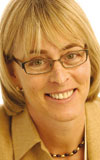Safety from the storm
 “Cable’s recurring revenues means that debt is easier to finance…which means cable can more easily afford to continue to invest in network upgrades.”
“Cable’s recurring revenues means that debt is easier to finance…which means cable can more easily afford to continue to invest in network upgrades.”
When the world is struck with uncertainties and the global financial markets get a case of the jitters, the markets have a strategy called “flight to safety” and one such destination that has been seen traditionally as a safe bet is cable.
So amidst earthquakes and nuclear danger in Japan and civil unrest and war in North Africa, what Liberty Global is doing now – gobbling up assets – makes perfect sense. The European cable TV sector is in consolidation mode, which is driving valuations for assets to heights not seen in years. That’s good news for a sector that is facing increased competition from over-the-top services.
Several owners are looking to cash in on the renewed interest, including those of Dutch operator Ziggo and several smaller German operators. Liberty Global is without doubt the hungriest buyer at the moment. The US-based company has big ambitions in Europe after selling out of its holdings in Japan and it has already shown that it is willing to outbid others in its ambition to snap up assets in key European markets. Fresh from its ?3.2 billion purchase of Germany’s third-largest cable operator Kabel BW in March from EQT Partners, Liberty is eyeing Ziggo, owned by private-equity companies Cinven and Warburg Pincus. Like the former owners of Kabel BW, Ziggo’s have been looking at a flotation of the country’s largest cable TV operator but, given the rocky state of the public markets at the moment, a straight sale rather than a more risky IPO may look more appealing.
Bidding against an IPO option has not deterred Liberty in the past. Not only does the US company have clear strategic ambitions, but it also has deep pockets. Earlier this year Liberty announced it had a US$3 billion (?2.1 billion) war chest. It already owns Germany’s number two cable TV company, buying Unitymedia in 2009 for US$5 billion, so it had clear strategic reasons to want to increase its German footprint. Its deal to buy Kabel BW was fiercely fought against rival bids from CVC Capital Partners and Hellman & Freidman. Liberty not only bid eight times Kabel BW’s estimated 2011 EBITDA, but was willing to take on ?2.25 billion in new debt set up by the seller that Liberty will assume under the new capital structure once the transaction is complete. Liberty also surprised some in the financial sector by agreeing to assume any risk that its purchase of Kabel BW runs foul of European or German regulatory authorities.
This is no small thing as German regulators have blocked attempts to consolidate cable in the past. Liberty was clearly keen to own Kabel BW’s 2.4 million customers in the affluent state of Baden-Württemberg, and so it agreed to guarantee EQT Partners the full price even if the deal was blocked, upon which the operator would be sold to a third party and Liberty would shoulder the difference. Of course Liberty hopes that the regulators will see consolidation of cable as a way to encourage network investment, offering more competition to Deutsche Telekom. One can assume that Liberty will be willing to offer similar terms in a bid for Ziggo, where it already owns Dutch number two operator UPC. The price could be as high as US$10 billion, according to some estimates.
Cable is popular because it is a business that has regular subscription revenues from customers and the potential to add more services like on-demand services and superfast broadband all on top of an existing infrastructure. The recurring revenues means that debt is easier to finance, typically at about five times EBITDA compared to about three times for broadcasters, which means cable can more easily afford to continue to invest in network upgrades. The very successful IPO last year of Germany’s largest cable company Kabel Deutschland, despite a rocky overall financial climate, has also helped spur renewed interest in cable’s value. Since the IPO, Kabel Deutschland’s shares have risen 74% and its most recent financial results reported EBITDA up by 11%.
There is also a growing interest in mobile broadband combined with cable offerings. Most cable operators already offer bundles of telephone, TV and high-speed broadband, but the appetite for mobile broadband outside the home from consumers is high and regulatory changes in some European countries could allow cable to add mobile to its offer. Indeed, last year Ziggo and Sweden’s Tele2 won a Dutch mobile spectrum auction, allowing them to roll out mobile data networks.
All this may mean that there may be other buyers of cable assets lining up, including the likes of Vodafone and Telefónica. All this will put more pressure on both private-equity and strategic buyers including Liberty Global to ramp up their deal-making skills. But Liberty is on a roll. At the recent Cable Congress in Lucerne John Hahn, managing director of Providence Equity, joked that if Liberty continues its acquisition drive the industry annual congress could soon become “a Liberty Global offsite” meeting. Said somewhat tongue in cheek, but not completely. Time will tell.
Kate Bulkley is a broadcaster and writer specialising in media and telecommunications. [email protected].
